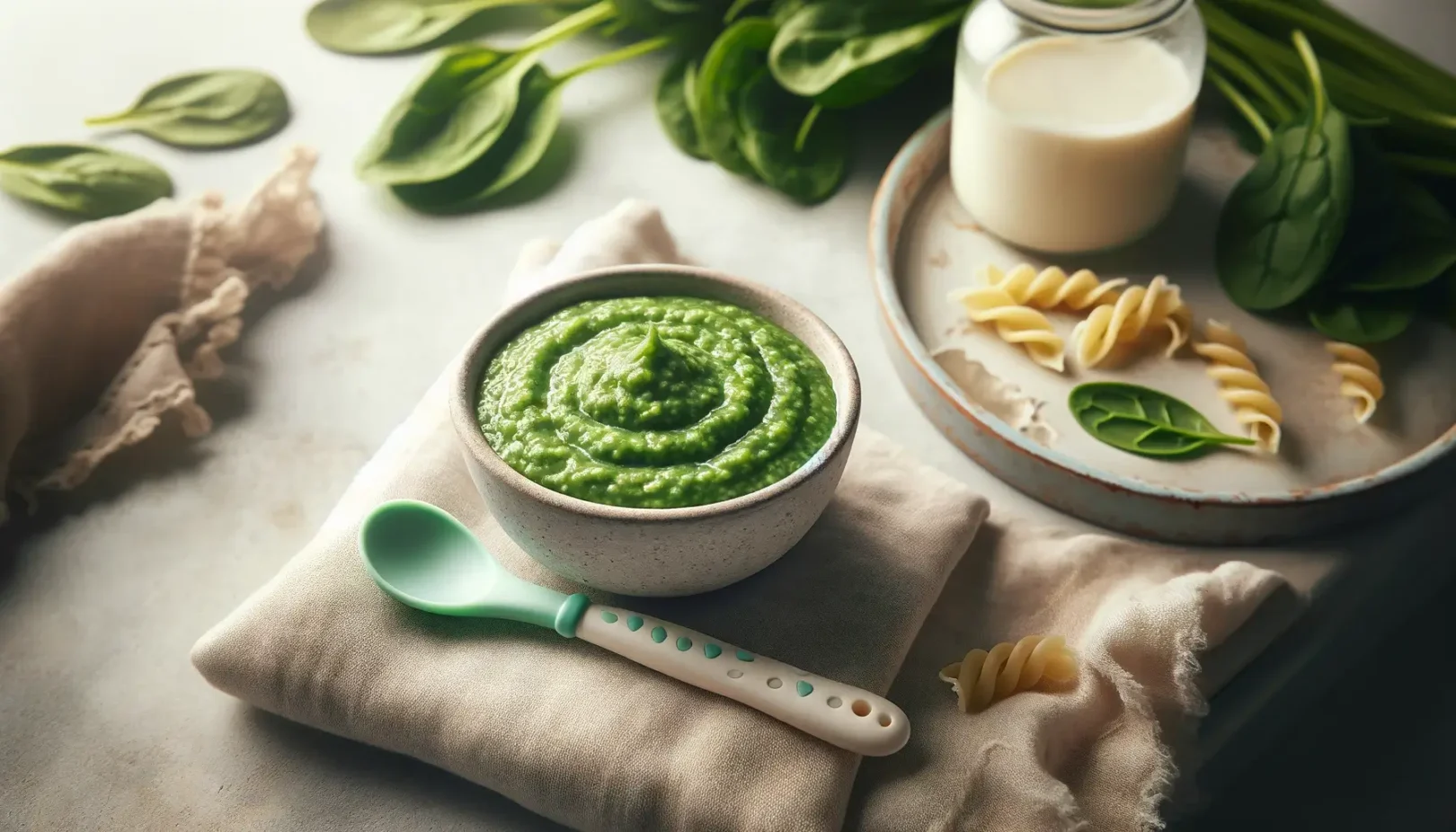
Bebe Epinards: A Comprehensive Guide to Introducing Spinach to Your Baby
Introducing solid foods to your baby is a significant milestone, and navigating the world of infant nutrition can sometimes feel overwhelming. Among the many healthy options available, bebe epinards, or baby spinach, stands out as a nutrient-rich choice. This guide will provide you with everything you need to know about incorporating bebe epinards into your baby’s diet, from its nutritional benefits to preparation tips and potential allergy concerns.
Why Choose Bebe Epinards for Your Baby?
Bebe epinards offer a wealth of essential nutrients that are crucial for your baby’s growth and development. These tender leaves are packed with vitamins, minerals, and antioxidants, making them an excellent addition to their diet. Here’s a closer look at the nutritional profile of bebe epinards:
- Vitamins: Bebe epinards are a good source of Vitamin A, Vitamin C, Vitamin K, and folate. Vitamin A supports healthy vision, immune function, and cell growth. Vitamin C boosts the immune system and acts as an antioxidant. Vitamin K is essential for blood clotting and bone health. Folate is crucial for cell division and the formation of DNA.
- Minerals: These leafy greens are rich in iron, calcium, magnesium, and potassium. Iron is vital for red blood cell production and preventing anemia. Calcium is essential for strong bones and teeth. Magnesium supports muscle and nerve function. Potassium helps regulate blood pressure and fluid balance.
- Antioxidants: Bebe epinards contain antioxidants like lutein and zeaxanthin, which protect against cell damage and support eye health.
- Fiber: The fiber content in bebe epinards can aid digestion and prevent constipation, a common concern when introducing solids.
When and How to Introduce Bebe Epinards
The general recommendation is to introduce solid foods, including bebe epinards, to your baby around 6 months of age. However, it’s always best to consult with your pediatrician before starting solids, as each baby develops at their own pace. Look for signs that your baby is ready for solids, such as the ability to sit up with support, good head control, and an interest in food.
Here’s a step-by-step guide on how to introduce bebe epinards to your baby:
- Start with a small amount: Begin with just a tablespoon or two of pureed bebe epinards to see how your baby tolerates it.
- Introduce it on its own: Offer bebe epinards as a single ingredient to easily identify any potential allergic reactions.
- Wait a few days: After introducing bebe epinards, wait 2-3 days before introducing another new food. This allows you to monitor for any signs of allergies or digestive issues.
- Gradually increase the amount: If your baby tolerates bebe epinards well, you can gradually increase the amount you offer.
Preparing Bebe Epinards for Your Baby
Proper preparation is crucial to ensure that bebe epinards are safe and easy for your baby to digest. Here are a few methods you can use:
- Steaming: Steaming bebe epinards is a gentle way to cook them while preserving their nutrients. Steam for about 5-7 minutes until the leaves are tender.
- Boiling: Boiling is another option, but it can leach some of the nutrients into the water. Boil for about 3-5 minutes until tender.
- Pureeing: Once cooked, puree the bebe epinards using a blender or food processor until smooth. You may need to add a little water or breast milk to achieve the desired consistency.
- Combining with other foods: As your baby gets older, you can start combining bebe epinards with other foods like sweet potatoes, carrots, apples, or chicken. This can help introduce new flavors and textures.
Recipes Featuring Bebe Epinards
Here are a few simple and nutritious recipes that incorporate bebe epinards:
Bebe Epinards and Apple Puree
Combine steamed and pureed bebe epinards with pureed apple for a sweet and savory blend.
Bebe Epinards and Sweet Potato Mash
Mix steamed and pureed bebe epinards with mashed sweet potato for a nutrient-rich and flavorful meal.
Chicken and Bebe Epinards
Puree cooked chicken with steamed and pureed bebe epinards for a protein-packed and nutritious meal. [See also: Introducing Chicken to Your Baby]
Potential Allergy Concerns
While bebe epinards are generally safe for babies, it’s essential to be aware of potential allergy concerns. Although spinach allergies are rare, they can occur. Signs of an allergic reaction may include rash, hives, itching, swelling, vomiting, diarrhea, or difficulty breathing. If you notice any of these symptoms after your baby consumes bebe epinards, seek medical attention immediately.
Additionally, bebe epinards contain nitrates, which can be converted into nitrites in the body. High levels of nitrites can interfere with the blood’s ability to carry oxygen. However, the amount of nitrates in commercially available bebe epinards is generally considered safe for babies. It’s still a good idea to introduce bebe epinards in moderation and to avoid giving your baby large quantities of nitrate-rich foods at the same time.
Tips for Choosing and Storing Bebe Epinards
When selecting bebe epinards, look for leaves that are vibrant green, crisp, and free from blemishes. Avoid leaves that are wilted, yellowing, or slimy. You can find bebe epinards in pre-washed bags or bunches at most grocery stores.
To store bebe epinards, wrap them loosely in a paper towel and place them in a plastic bag in the refrigerator. They should stay fresh for about 3-5 days. It’s best to use them as soon as possible to maximize their nutritional value.
Addressing Common Concerns About Bebe Epinards
Parents often have questions and concerns when introducing new foods to their babies. Here are some common questions about bebe epinards:
Is it safe to give my baby bebe epinards every day?
While bebe epinards are nutritious, it’s best to offer a variety of foods to ensure your baby gets a balanced diet. You can include bebe epinards in your baby’s diet several times a week, but don’t rely on them as the sole source of nutrients.
Can bebe epinards cause gas or constipation in babies?
Some babies may experience gas or changes in bowel movements when they start eating bebe epinards. This is usually temporary and resolves as their digestive system adjusts. If your baby experiences persistent discomfort, consult with your pediatrician. The fiber in bebe epinards can actually help prevent constipation in many cases.
Should I cook bebe epinards before giving them to my baby?
Yes, it’s important to cook bebe epinards before giving them to your baby. Cooking helps soften the leaves and makes them easier to digest. It also reduces the risk of bacterial contamination. Make sure the bebe epinards are thoroughly cooked and pureed to a smooth consistency before serving.
Conclusion
Bebe epinards are a fantastic addition to your baby’s diet, offering a wide range of essential nutrients that support their growth and development. By following these guidelines and consulting with your pediatrician, you can confidently introduce bebe epinards to your little one and help them develop healthy eating habits from an early age. Remember to introduce new foods gradually, monitor for any allergic reactions, and always prioritize your baby’s health and well-being. With a little patience and creativity, you can make bebe epinards a delicious and nutritious part of your baby’s culinary journey. Enjoy the process of exploring new flavors and textures with your little one!

